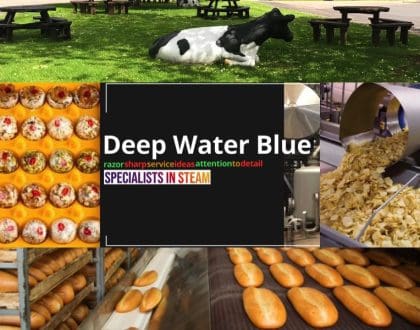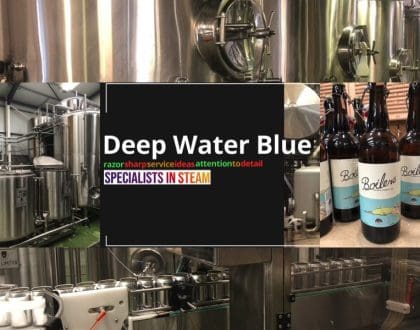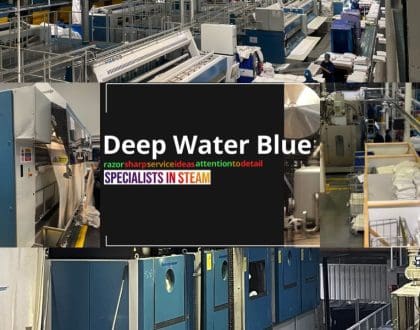The impact of Covid-19 on Boiler Water Treatment

May you live in interesting times… and these are possibly the most interesting times that most of us will have lived through. The Covid-19 pandemic has torn through the world wreaking devastation throughout and forcing preventative measures never before seen on such a scale. The human cost is heartbreaking with the celebration of our healthcare workers and other frontline staff who are risking their lives daily being quite rightly at the front of our minds.
As lockdowns progress and we start to find our feet in this ‘new normal’ other effects become evident. With people limited as to what they can do and the shutting of many businesses, it is the suppliers of products and services who then have to review their operations. Difficult decisions have been made and continue to be made while the politicians plan and discuss the path out of the lockdowns with restrictions likely to be in place for many months to come.

As boiler water treatment specialists, our role here, is to help assist our customers in making the correct decisions for their plant. This starts with laying up the systems correctly, primarily to minimise the possibility of corrosion, and then when needed, bringing them safely back into service.
Some of the challenges here come from the uncertainty as to how long this lockdown and consequent business downturn will last, and it is the answer to this question that then helps define the correct method of storage of the systems. Are you looking at a 2-week shutdown, a month, longer? When you come back online will you be going straight to full production or are you going to be running at say 2 days a week as the order books are re-established?
You may already have found yourself in this situation and have had to make decisions quickly as to what you should be doing with regards to the boiler water treatment. Simply turning the unit off, whether it be a boiler or steam generator and then hoping, or even assuming, that you can just turn the systems back on when needed, is a recipe for disaster within your plant. Often in this scenario, a variation on boiler wet lay-up will have been used and advice should have been sought from documents such as BG04, from the CEA and ICOM, or perhaps even your water treatment provider, as to how to best protect your system during these uncertain times.

Using the correct method for laying up the boiler is crucial in order to ensure that corrosion is kept at bay. An incorrectly laid up boiler will cause significant difficulties with waterside corrosion and once corrosion sets up, it is very difficult to remove it. Once the COVID-19 restrictions are lifted and production is to come back online, the delays that could then be caused due to the failure of any part of the boiler system, could have devastating consequences for the site’s output and ultimately the survival of the business.
The main options with regards to layup are either a dry layup or a wet lay-up and there are advantages and disadvantages to both. With a dry lay-up, you have a minimal amount of monitoring once the lay-up has been completed, however, it takes longer to bring the system back online which may not be suitable for all applications. We are seeing a significant number of our customers in this situation going down the path of wet lay-up. This, if carried out correctly, will preserve the system and allow for a relatively swift return to service as required.

There are already documented procedures in place for the waterside treatment of systems which are offline for varying lengths of time. Monitoring is still required as chemical treatment reserves will degrade as the period of lay-up continues and additional dosage will be required to ensure that treatment levels remain sufficient, in order to give the necessary system protection. It is also important to consider the condensate lines, as pools of cooled condensate will result in extremely aggressive conditions and any condensate lines should be fully drained and left dry during the system lay-up.
For the systems on your site, any chemical treatment should be kept at a minimum in dosing tanks to preserve freshness and any mix should be made specifically according to usage requirements. It is also important to maintain system alkalinity during prolonged shutdown periods to prevent any acid attack or breakdown of the magnetite protective layer.

Should the system be offline for greater than 1 month the correct lay-up will always be to dry store the boiler or steam generator and your boiler manufacturer will have specific guidance for this around the plant that you have on-site.

Once the decision is made to bring the systems back into service it is critical that this is carried out correctly. The boiler start-up procedure should follow the manufacturer’s guidelines along with any site-specific procedures which are in place.
Before firing up your steam raising plant you also need to carry out some basic checks on the feedwater system. Are the chemical pumps operational and free from any crystalised product in the dosage/suction line or pump head? Is the softener working correctly/have you manually regenerated each column? Is the immersion heater for the feed tank operational (if present) to allow for good hot well temperatures before the steam sparge and condensate return are functioning? Walk your plant and determine the points that need to be checked for your system to give you the best chance of a successful reinstatement of steam production, whilst protecting your plant. It is also likely that the chemical reserves will require boosting before the systems come online to give the required protection to the feed system and allow reserves to rise quickly within the boiler for optimum protection.
Now your systems are back online it is important to treat them correctly for the usage that they will have going forward. If you are back to normal operation and production then maintaining your treatment reserves at your normal parameters will be sufficient. However, should you be coming back into service intermittently it will still be important to manage this correctly and guidance is in place to assist for both steam generators and boilers.
Following these recommendations should allow you to resume operation with minimal disruption to your services and maintain the integrity of your plant when circumstances allow.
If you need any help, please get in touch with us at Deep Water Blue Ltd.-Specialists in Steam. Tel 08704602980 or mail to [email protected] www.deepwaterblue.co.uk.





